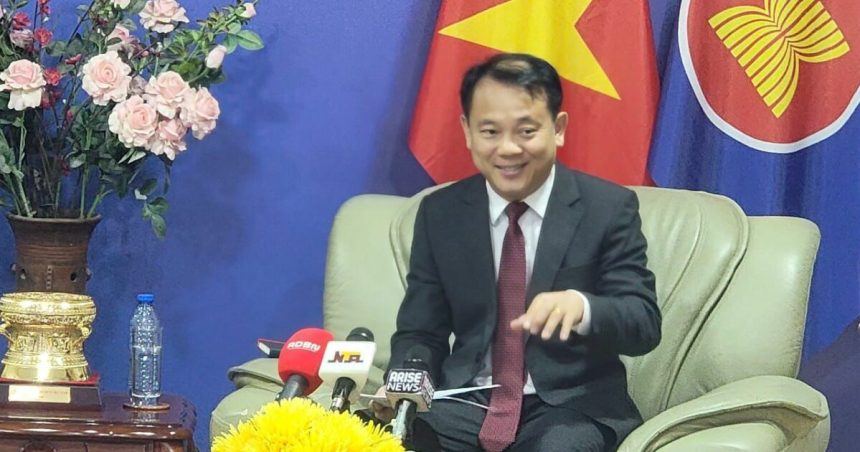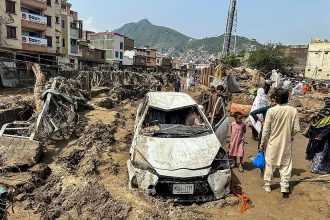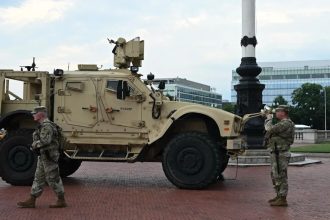The Vietnamese Government has called for deeper cooperation with Nigeria in trade, agriculture, education, and security.
Vietnam’s Ambassador to Nigeria, Bui Hung, made the call on Tuesday in Abuja during events marking the 80th anniversary of the August Revolution and the 80th anniversary of the Ministry of Foreign Affairs of Vietnam.
Hung noted that despite progress in recent years, the growth potential between the two countries remains largely untapped.
According to him, trade between Nigeria and Vietnam reached $1bn in 2024, compared to an average of $600m in previous years.
“Last year was the first time our trade volume hit $1bn, largely because we bought more crude oil from Nigeria.
But oil and gas should not be the focus. I believe agriculture offers more sustainable opportunities,” he said.
The envoy explained that Vietnam currently exports electronics, garments, footwear, and consumer goods to Nigeria while importing cashew nuts and a few agricultural products in return.
He, however, identified barriers to rice trade as a major limitation.
“Vietnamese rice has struggled to enter Nigeria’s market because of very high tariffs, close to 70 percent.
Another factor is taste preference; Nigerians prefer basmati rice, while ours is jasmine and sticky. But globally, our rice is highly demanded, with the US, Japan, and Southeast Asia as major buyers,” he added.
Hung suggested agricultural collaboration as a viable alternative, citing Vietnam’s expertise in rice cultivation.
“We can bring our seeds, technology, and farmers to work with Nigerian farmers. One Vietnamese farmer is already growing rice successfully in Benue State,” he stated.
The ambassador also disclosed that a proposal for a Free Trade Agreement between the two countries had been pending for more than a year.
“By signing such an agreement, we can lower tariffs and improve trade flows. We have done this with Japan, Korea, and many other nations. We are still waiting for Nigeria’s response,” he said.
On security and defence, Hung recalled that military exchange programmes already exist.
“Some Nigerian officers have trained in Vietnam and given very positive feedback about their experience. We are open to expanding this cooperation, including technology transfer,” he said.
He also highlighted education and skills development as key areas of interest.
“Nigerian students are studying maritime, agribusiness, and ICT in Vietnam. We are also open to hosting more students and workers for capacity building, especially in the era of artificial intelligence,” he said.
While acknowledging challenges such as insecurity, Hung expressed optimism about the future of bilateral relations.
“Nigeria has fertile land, abundant water, and a young labour force. With the right cooperation framework, we can build strong ties that benefit both nations,” he concluded.









